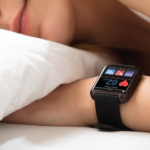From her seat at the front of a large conference room during a discussion that morning, Dr. Turner Lee turned to face the audience of patients, patient advocates and healthcare insiders: “We’ve come a long way, but the road is not over, and the task for all your associations has just become more complicated,” she said. “Pay attention! Pay attention!”
Encouraging innovators in labs, offices and other settings outside communities to design products for such communities is a “poor idea” in large part because of the disconnect, said Chris Gibbons, MD, MPH, interim director of the National Health IT Collaborative for the Underserved and CEO of the digital health company Greystone Group.
However, he thinks the U.S.’s growing problem with health literacy “is a non-issue going forward,” he said during a discussion about medical devices. “I understand and applaud the significant money and effort that is being spent on improving health literacy,” Dr. Gibbons wrote in an email after the event. But “the need for health literacy efforts is a strong indicator of poor design. Technologies built with user-centered design methods generally result in products that are more usable with little need for teaching or education about how they work. … The best technological tools are plug and play. Over time, as this continues, the need for formal health literacy training will significantly decrease.”
Buy In
But patient advocates face steep challenges pushing the healthcare system in that direction, he noted. For one, physicians must buy in, and that has long proved difficult. “I’m a physician,” said Dr. Gibbons, who practiced at Johns Hopkins University School of Medicine in the 1990s and is now a part-time medical professor. “Let’s face it: We’ve been resisting technology, and [some] are still resisting technology.” (Fewer physicians are resisting lately, however, according to reports.)
Overall, Dr. Gibbons supports innovators harnessing the power of technology to develop new tools within the space, but only while keeping patients in mind. “The problem,” he added, “is not the patient.”
Dr. Gibbons also questioned which groups are and should be entitled to access the realms of patient data being collected in the digital space during numerous care touch points. “Who really owns that? Does the patient own it?” he asked rhetorically.
Privacy
Megan Jones Bell, PsyD, Google Health’s clinical director of consumer and mental health, unintentionally answered part of that question during a presentation later about Google, YouTube and mental health. Regarding mental health at least, Google does not claim ownership of or store any of the data from self-assessments, such as from depression, anxiety and PTSD scales, when it is entered on its site, she said. The company does not want the search industry in general to keep such data.


